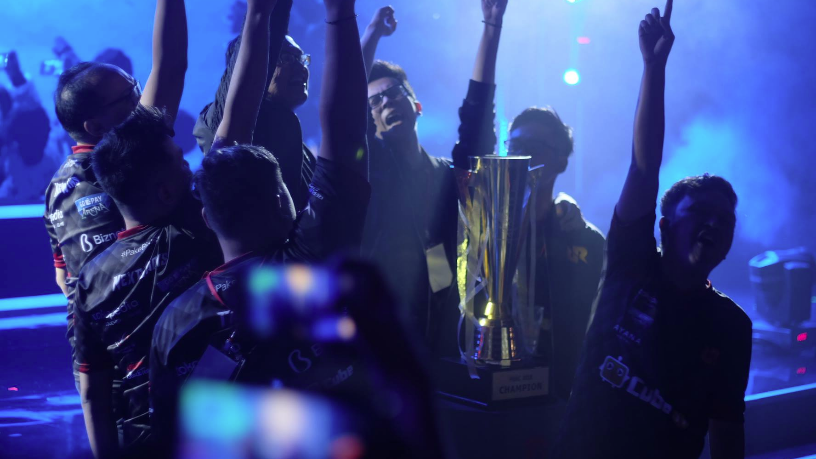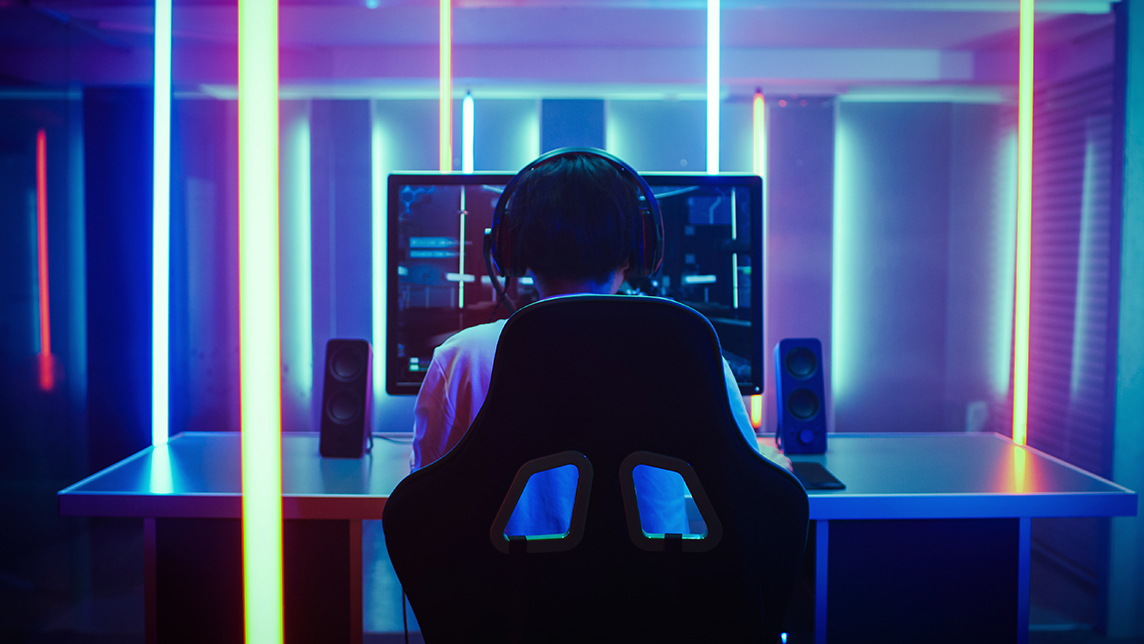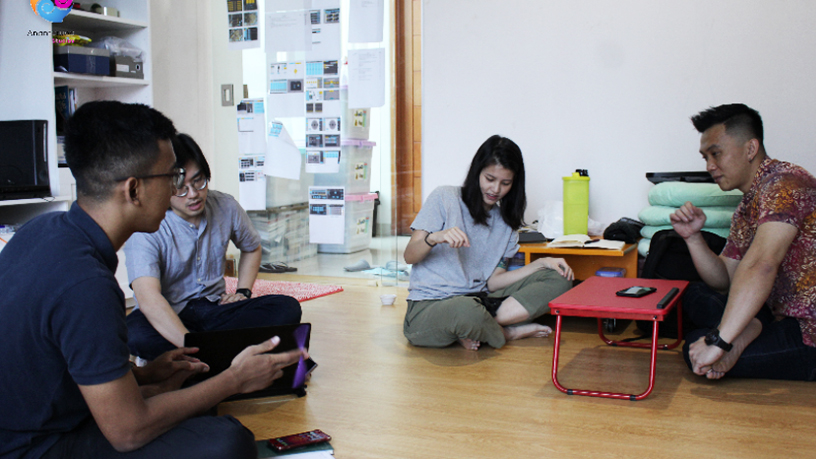How does an esports team make it big in a country where the idea of esports is still in its infancy and is even seen as childish by some?
With a good dose of self-esteem and ambition, as Indonesian esports team Rex Regum Qeon (RRQ), latin for “King of Kings,” has shown. Not only is the team one of the country's biggest esports players, it is one of the most-rounded teams in the whole of Southeast Asia.
Currently, RRQ has seven divisions (they compete in seven different competitive games), 12 teams, 78 full-time players, and 240 awards on its trophy shelf. In the past two years, they have gained a powerful momentum in many popular games, including China's Mobile Legends, by recruiting some of the local leagues' most-talented and popular players.
They are also partners with non-gaming big brands such as internet provider Biznet, e-money platform GoPay, cinema chain 21 Cineplex, instant-noodle brand PopMie and peanut brand Sukro. On Instagram, RRQ has over 1.4m followers.
“We are also developing teams that will bring our name to the wider world stage,” Andrian Pauline, CEO and co-founder of RRQ, said in an interview. “They will be champions not only in games that are famous in Asia, but in global games, too.”
A passion for games
RRQ was founded in 2013 by Riki Kawano Suliawan, CEO of Indonesian-based gaming publisher Qeon Interactive, which in turn is owned by MidPlaza Holdings. Suliawan was a fan of esports tournaments when overseas and wanted to create his own team to compete in the games. His main obstacle, however, was that he lacked the networking and on-the-ground experience to navigate the still-growing Indonesian esports field.
Thus Suliawan invited Pauline, his old friend and a competitive player since the early 2000s, to join RRQ as CEO and co-founder. Pauline said: “[Suliawan] and I were passionate about esports and, in particular, about bringing more Indonesian Defense of the Ancients(DotA) players to compete in international tournaments.”
Pauline was a force in first-person shooter games such as Counter Strike, eventually moving up to a training position before managing some local teams. He had also been at Qeon for a total of 10 years, earning Suliawan's personal and professional trust first as Director of Sales and Marketing, then as Product Director.
“I have been an avid video-game player since I was 10 and really got into it in 2003 with Counter Strike,” said Pauline. “I ended up managing a team called Executioners, or XCN.” This was one of Indonesia's most popular personal-computer teams (meaning that they did not compete on other platforms such as gaming consoles). Through XCN, Pauline learned about managing players, expanding divisions and how to hook up with sponsors.
Like many new teams, RRQ began by focusing on one game, namely DotA, which today remains one of the most played games in the esports arena.
Covid-19 adjustments and gains
Pauline says that RRQ, like other esports teams, has had to make adjustments during the Covid-19 virus quarantine period. They have canceled most of their on-the-ground activities, including some tournaments and promotional activities.
Still, Pauline says that as an esports team, they have the privilege of not having to suspend all of their activities since a lot of it is already online-based.
“It’s not like a soccer team. We can still do all of the training sessions from each of the players’ homes, which we are doing. And we are also still partaking in some smaller online tournaments,” he said.
If anything, Pauline says that there is likely to be a rise in esports activities and interest during this period. Indeed, some reports has shown this to be the case. The Washington Post last month reported a spike in esports streaming online. Kent Wakeford, co-founder of Gen.G, a US esports company, told the newspaper his team had experienced an 18.2% rise in its viewership from China in the previous two months on the Chinese livestreaming sites, Douyu and Huya.
A regular sports team
Pauline manages RRQ in ways that he says a regular sports team would be managed. Beyond looking for technical trainers who can hone team skills in each particular game, Pauline's activity consists of sponsorship meetings, content creation, talent seeking and taking care of RRQ's merchandise business.
He also started to expand the RRQ brand, beginning in October 2019 with the RRQ Academy launch in Jakarta. This offers courses for aspiring esports athletes, including coaching from professional athletes and practical lessons on understanding team roles, map-reading comprehension, effective team communication and anticipating zones.
RRQ's players mostly live in housing provided by the team, though this isn't compulsory. They undergo regular training to ensure readiness whenever a tournament calls.
“We train five times a week,” said Pauline, and there are disciplinary measures for those who break the training hours rules. Starting this year, we are also providing psychologists to support team members mentally."
In 2018, RRQ expanded by developing teams in Thailand, who have gone on to win tournaments there. They have also begun importing international players from the Philippines and Japan to play in Indonesian teams.
“One of the reasons I joined RRQ is because they made esports in Indonesia grow into what it is today. Who wouldn't want to be a part of that?” said Christopher “Kenboo” Kayne Nitiatmadja, one of RRQ's brand ambassadors and its most popular player, with 264,000 Instagram followers. “I've got a lot of good things out of joining RRQ – professionalism, discipline and a good attitude.”
Social media kings
Pauline is particularly proud of how consistently RRQ has bred players that have gone on to become names in the esports field. He is also proud of how RRQ's level of professional management has, in his view, influenced a lot of other Indonesian teams.
“We utilize our social media channels effectively and powerfully with great content,” he says. “We have also worked with a lot of great brands and have often been invited to speak at educational institutions.”
Esports journalist Akbar Prio agrees. Writing for the esports website Hybrid, journalist Prio praised RRQ for not only having notable achievements in the field, but also for their social media prowess. "They have the best content creation game in town, I would say. Their design and content is always very creative. No wonder they have so many followers."
Though RRQ itself does not publicize its income from winnings and merchandise, Prio noted that in 2019 alone the team won a total of 12 games, each with winnings between $100,000 and $5,000. He calculates that they made a total of IDR 5.7bn in 2019 in addition to the sponsorship money they receive and which remains their bread and butter.
“Having that much sponsorship is no easy task, even for big teams,” Prio wrote.











